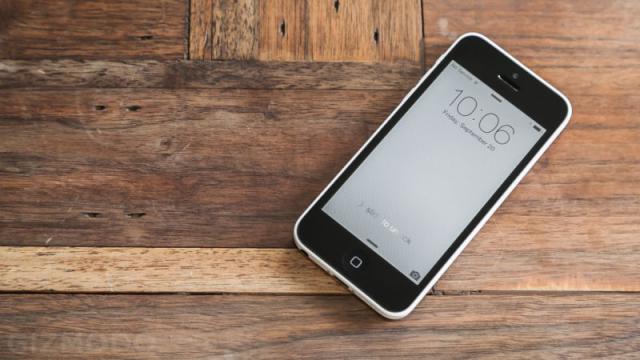Two extremely similar cases involving locked iPhones in two neighbouring Florida counties ended up with two conflicting judgements this week. Both suspects claimed that they couldn’t remember their passcodes, which prevented police from obtaining evidence. In one case, the judge slapped the suspect with contempt and sentenced him to 180 days in gaol. In the other case, the judge basically said, “OK, sorry you can’t remember, no big deal, let’s move on.”
Photo: Michael Hession
This is getting out of hand, guys. The question of whether authorities should be able to force a suspect to unlock a phone with a passcode is only becoming more relevant and pressing as smartphones fill the pockets of more and more people. Can we come up with answer already?
Legally speaking, phone unlocking is a very challenging question — that’s the problem. On the one hand, in the US, American citizens can’t be forced to testify against themselves according to the Fifth Amendment. This is the reasoning many defence attorneys use when prosecutors try to force suspects to unlock their iPhones. On the other hand, police and prosecutors are allowed to obtain evidence with a warrant from a judge. A suspect who refuses to supply a passcode — or who say they can’t remember it, as in this week’s Florida cases — could be held in contempt of court.
According to actual legal experts, the phone-unlocking debate is so challenging because the Fifth Amendment defence depends on whether or not the suspect is actually testifying by giving up a passcode or fingerprint. As Orin Kerr, a law professor at George Washington University, explains in The Washington Post, supplying the key to unlock it under a judge’s authority probably shouldn’t count as testimony, if the suspect has admitted that a certain device belongs to them. After all, the very act of supplying a key doesn’t add any new facts to the case. If it’s unclear who owns the locked device, however, things get dicier. Admitting to owning a phone that’s believed to contain incriminating evidence is testimony, because you’re adding new information to the case.
The US Supreme Court has actually tackled this very issue in a case that’s getting cited more and more in the phone unlocking debate: Doe v. United States (1988). This was a case where the US government wanted access to a suspect’s foreign bank records, but it couldn’t get them without the suspect’s signature. The suspect pleaded the Fifth and refused to sign anything. Long story short, the suspect lost the court battle because the Supreme Court ruled that “an accused’s communication must itself, explicitly or implicitly, relate a factual assertion or disclose information” to count as testimony.
This case is quickly becoming outdated, however. While a suspect can’t reasonably claim that they forgot how to sign their name, they can definitely claim to have forgotten their passcode, as the two suspects in Florida have. And as biometric security systems like facial recognition and iris scanners become more common, the debate is only going to become more complicated. Suspects could conceivably forget which finger (or toe) they used for TouchID, but can’t easily change their faces or iris patterns. One day, we might be living with a Philip K. Dick dystopia where you can buy new eyeballs to evade police, but there’s no time to wait.
The US should send a passcode case to the US Supreme Court. That’s what people do with challenging legal questions in the country, right? That’s what they did with the recent Lexmark printer ink case that determined once and for all that companies couldn’t claim patent rights on products after they’d been sold to consumers. Now, as it were, Americans can enjoy the privilege of not wondering if they’re going to get screwed over even more by huge corporations. It would be really fantastic if Americans could also enjoy a common understanding of how to protect their digital rights.
The big question now has to be who wants to be the scapegoat. I’d do it, but first I’d probably have to get arrested (which is not on my calendar this year). Then again, maybe that suspect on his way to gaol in Florida will appeal and appeal and appeal. And then, maybe, five years from now, there will finally be an answer from the highest court in the United States of America. We might be trading eyeballs by then, though.
